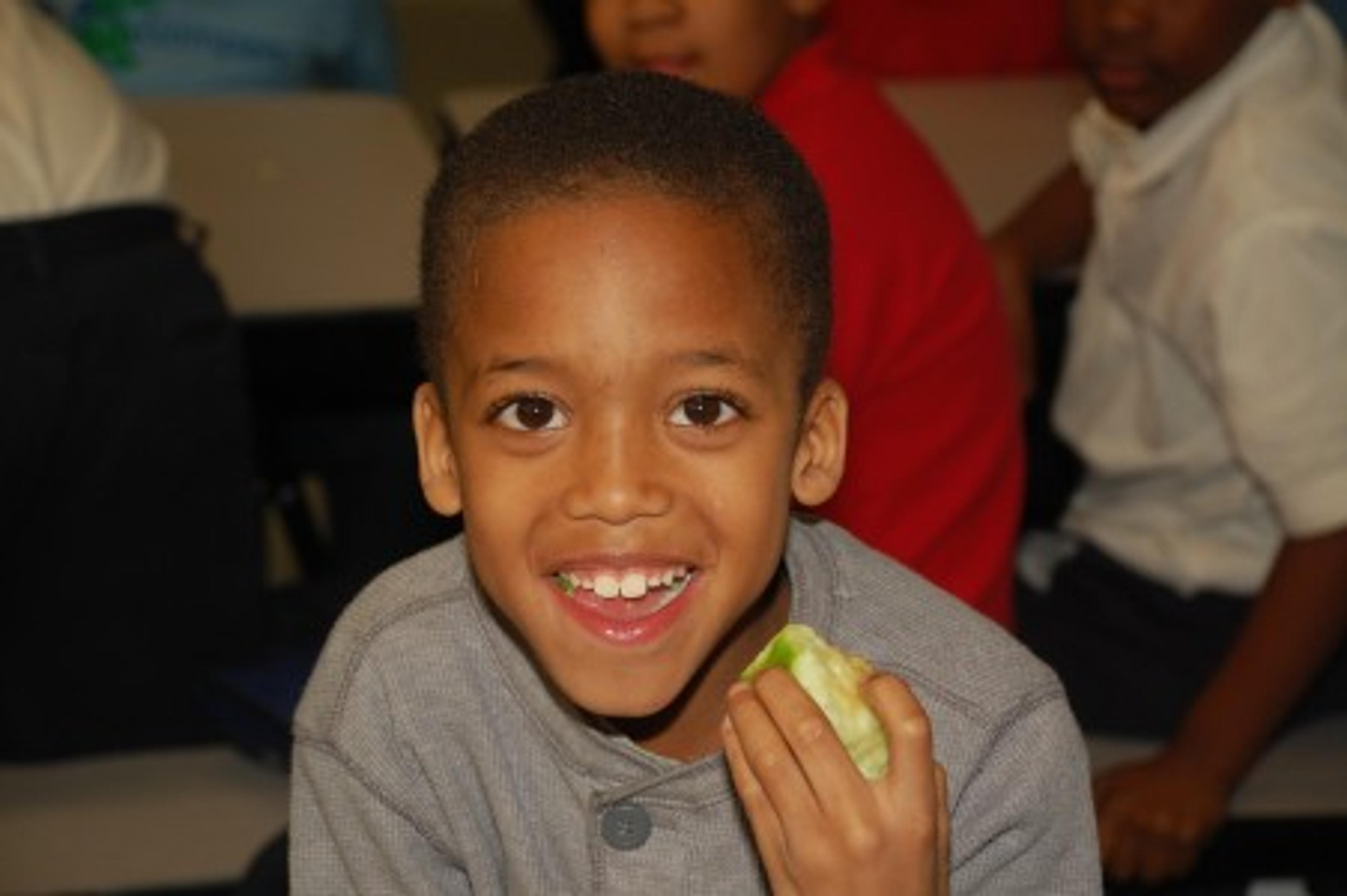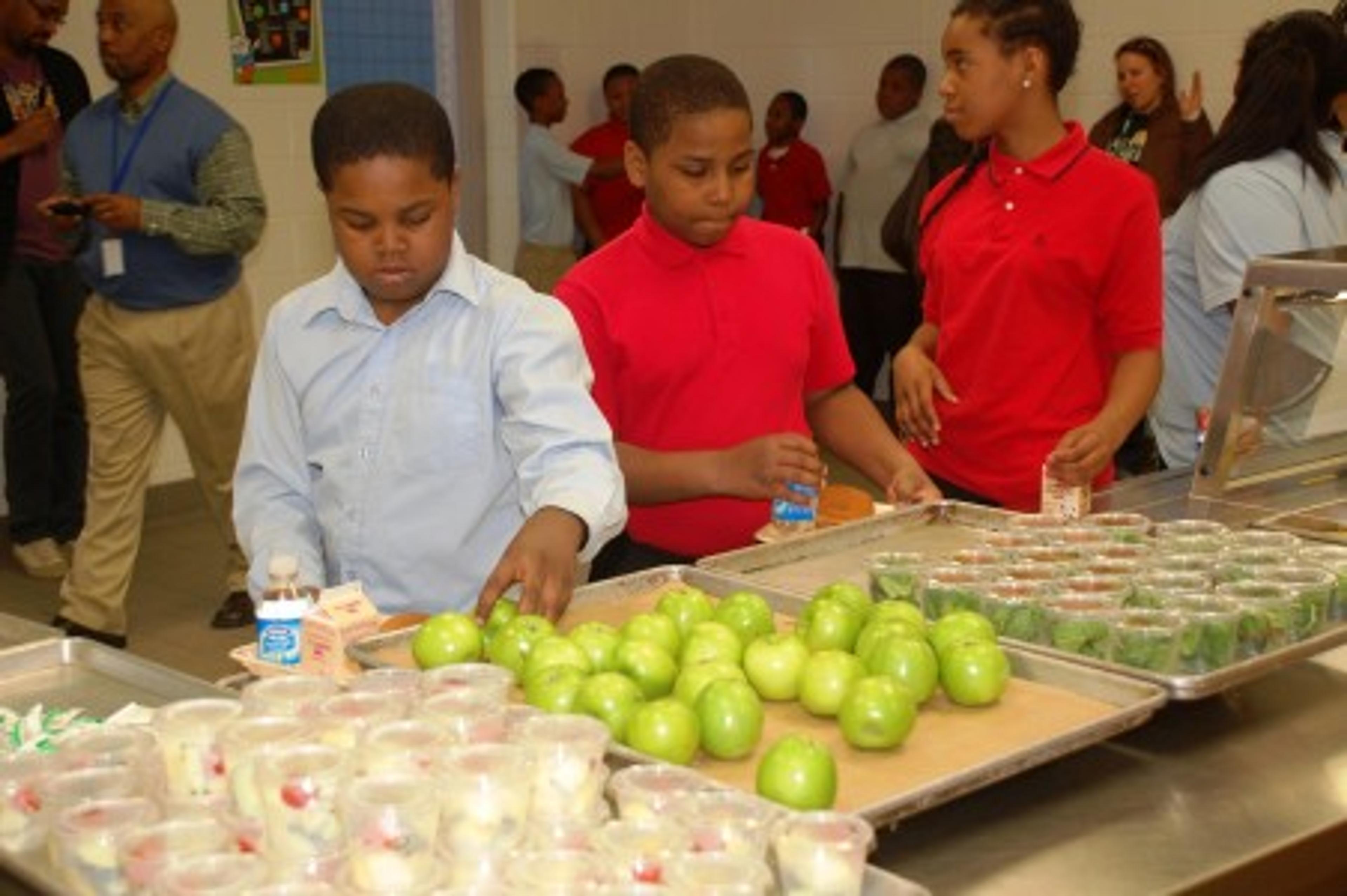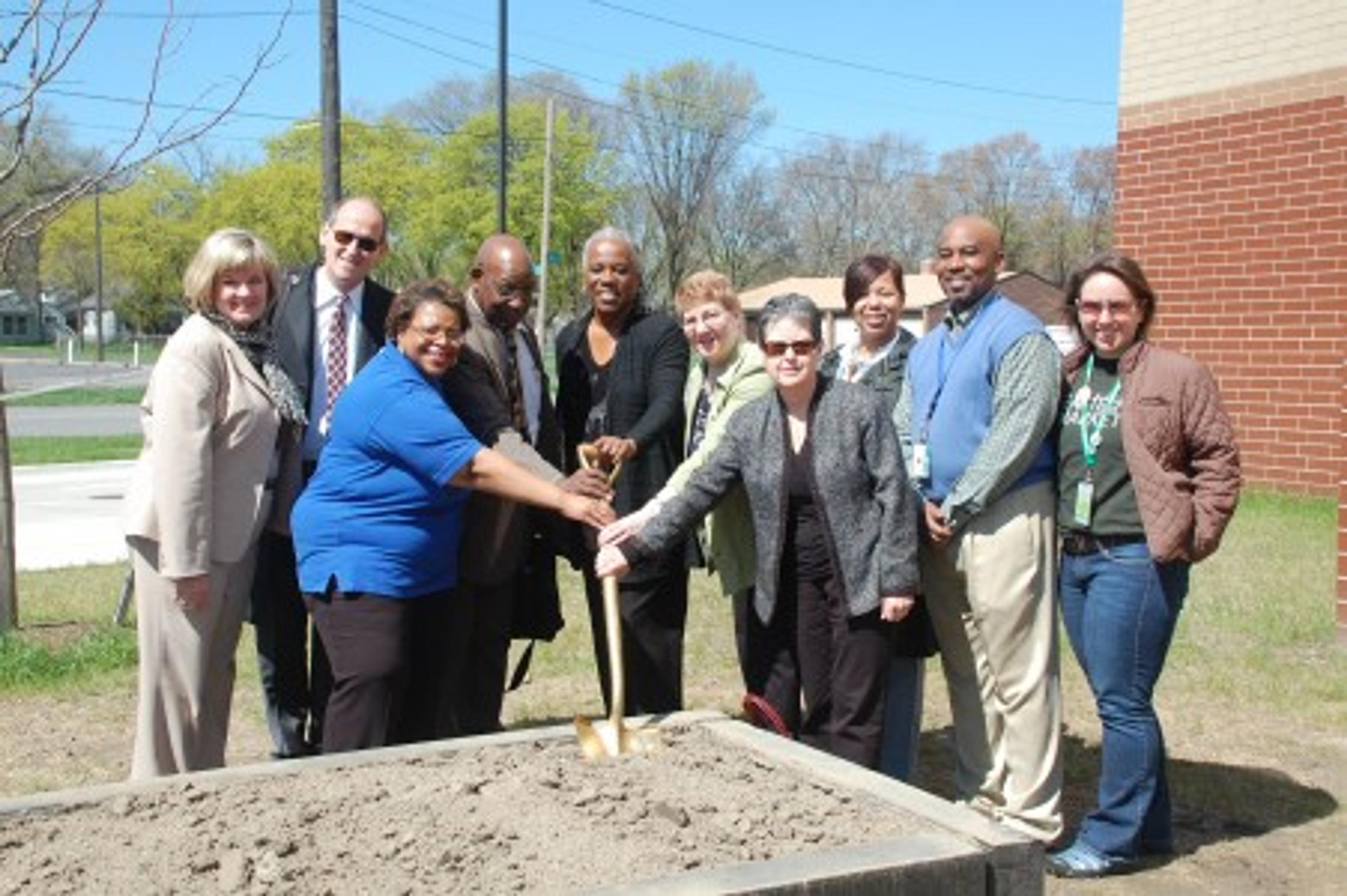Cultivating Healthy Eating Habits, One Garden at a Time
Registered Dietician
| 4 min read

I recently had the pleasure to interview Alycia Meriweather, Executive Director of the Office of Science at Detroit Public Schools, about the new farm to school initiative that is occurring at 45 Detroit Public Schools. As a registered dietitian, I am very excited to see this idea come into fruition. It will help teach kids about taking control of their health through gardening, healthy eating with more nutrient dense school lunches, while also being proactive about the community and the environment.
A Healthier Michigan: Where did the idea come from regarding the Garden Program?
Meriweather: We have been working with gardens for many years, but never really had a secure funding source until now to do it in a more comprehensive/systemic way. The Office of Food Service reached out to the Office of Science to see if we could partner to implement this idea as a “Farm to School Initiative” through the Office of Food Services. “Farm to School” is focused on getting healthy foods from the farm/garden to the cafeteria, and the office of food services felt that it would be best to include curriculum/academics on such an endeavor.
Q: Who are the other community partners and how are they a part of this initiative? How is it funded?
A: The other community partners will vary from school to school, but the overall project partners are Greening of Detroit, Eastern Market Corporation, DMC and United Way. This program is funded through federal dollars designated through the Healthy Hunger Free Act of 2010.
Q: Where will the gardens be and what are you growing?
A: The gardens will be at 45 schools on school property. Half of the beds must grow vegetables. We have not dictated what those will be beyond cherry tomatoes, lettuce and peppers to ensure that every school can take items from their garden to make the “stop light” salad.
Q: How exactly do the children participate? And which schools are participating?

A: Students will be involved in the planting and care of the garden, and the Farm to School Learning Station within the garden will be a place where lessons related to nutrition, health and the science behind it take place. Additionally, the gardens will be used for science fair projects/experiments (ie. What is the impact of different soils on the growth? What about light? Water?
Q: How is this helping improve the nutrition for the kids at Detroit Public Schools? And how has it changed the way the school lunch program operates?
A: Helping kids to understand healthy eating and the long term impact on their bodies is essential for improving nutrition. Providing kids the opportunity to try new items like kale, bok choy, etc., is also a great learning experience, because through structured “tasting” events, where students are encouraged to try new things, it can set up patterns for life. Because the gardens have not been installed yet, I cannot comment on the impact on the school lunch program yet. Ask us in the summer or fall. The kids are excited about it (as well).
Q: Is this a permanent change?
A: We hope that this is a permanent change. The following structural items have been intentionally part of this program to ensure sustainability: secure and renewable funding, a garden aide assigned to each site, garden managers dedicated to supervising the entire program, multiple entities within DPS working together (Food Service, Science and Site Management), school application that demonstrated commitment on behalf of the school, professional development for teachers and garden staff and community partnerships.
I will just share the quote that I shared at the ground breaking; spoken by someone that I believe to be one of the most genius people to ever walk this earth, whose learning laboratory happened to be a “garden” most of the time. I truly believe that the school gardens, if implemented correctly, can provide a place where students minds are encouraged and stimulated and where their nutritional habits will also be influenced for life.

Since new developments are the products of a creative mind, we must therefore stimulate and encourage that type of mind in every way possible.”
-George Washington Carver ♦
-George Washington Carver ♦
I think that says it all. A big thank you to Alycia for taking the time to answer my questions.
I am so excited to see how this will impact the children, their families, the school system and the community. Here’s to a successful farm to school initiative at Detroit Public Schools for all.
Photo Credit: Harold Harris, Detroit Public Schools Parent Volunteer





